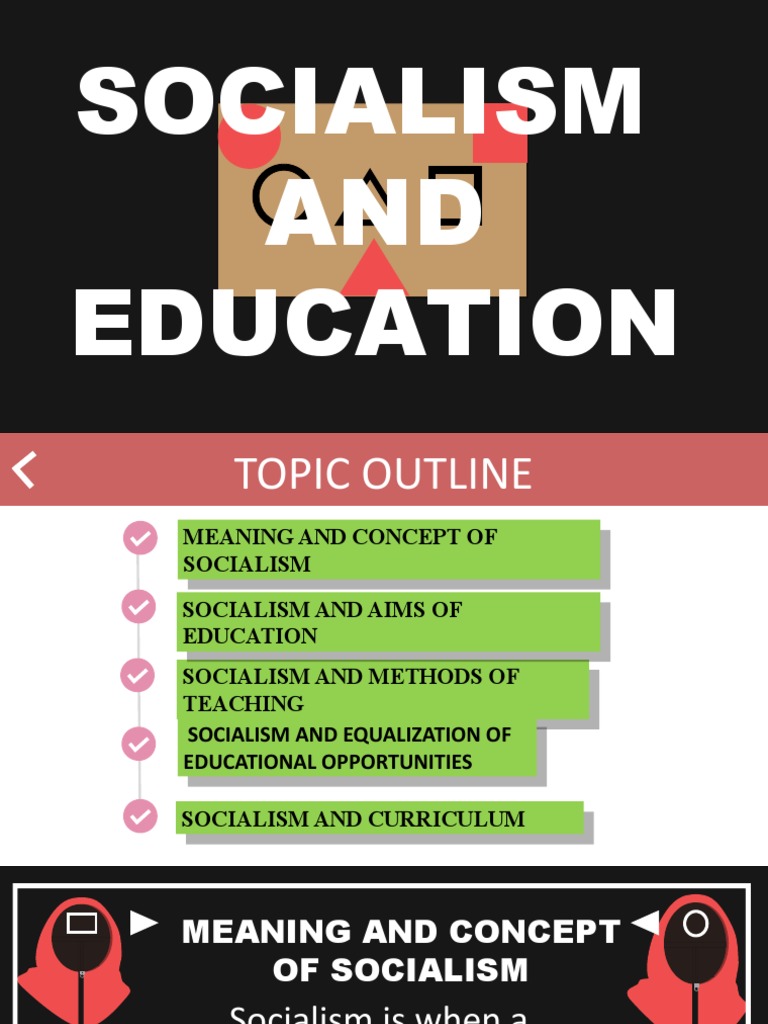In the contemporary discourse surrounding education and societal organization, two paradigms frequently intersect: the principles of socialism and the ethos underlying American public education. The Bahá’í teachings, with their inherent focus on unity, justice, and the advancement of civilization, offer a profound lens through which to explore these constructs. The Bahá’í Faith, with its emphasis on the oneness of humanity, provides a unique perspective that resonates deeply within the framework of public education and socialism in the American context. This exploration embarks on an intellectual journey that promises a shift in perspective and piques curiosity about the reconceptualization of educational and social systems.
The nexus between socialism and public education is rooted in the fundamental belief that access to education is a universal right, not a privilege reserved for a select few. Bahá’í teachings advocate for the eradication of extremes of wealth and poverty. This principle aligns closely with the socialist perspective that seeks to create a more equitable society, where education serves as a cornerstone for social mobility and collective prosperity. As the Bahá’í Faith posits that true education is meant to cultivate both the intellectual and moral dimensions of the individual, the integration of socialist ideals within public education serves to reinforce community values and shared responsibilities.
In the American context, public education has historically embodied democratic principles, wherein each child is afforded the opportunity to learn and grow, regardless of socio-economic status. The Bahá’í perspective further enriches this narrative by emphasizing the importance of moral education alongside academic instruction. The holistic development of individuals is paramount, as it nurtures not only knowledgeable citizens but also compassionate contributors to society. This dual focus on intellect and ethics encourages students to engage with the world around them, heightening their consciousness of social issues and civic responsibilities.
Moreover, the Bahá’í teachings assert that education must adapt to the evolving needs of society. In a rapidly changing global landscape, the integration of socialist principles into public education can lead to a curriculum that prioritizes critical thinking, problem-solving, and creativity. It challenges the conventional metrics of success often measured by standardized testing and rote memorization. Instead, an innovative educational framework emerges—one that prepares individuals to navigate complex challenges and fosters a sense of social responsibility. This shift in pedagogical approach aligns with the Bahá’í view that education is not merely a means to acquire knowledge but a vehicle for spiritual and social transformation.
Furthermore, the Bahá’í teachings highlight the transformative power of education in dismantling prejudices and fostering unity among diverse populations. In a pluralistic society like the United States, public education must serve as a platform for inclusivity and understanding, reflecting the Bahá’í principle of the oneness of humanity. Socialism, with its emphasis on collective welfare, complements this vision by prioritizing equal access to educational resources. In doing so, it promotes an environment where individuals from various backgrounds can engage with and learn from one another, ultimately contributing to a more harmonious society.
As we delve deeper into the intersection of Bahá’í teachings, public education, and socialism, we encounter the imperative of community involvement. The Bahá’í model encourages collaboration among parents, educators, and community members to foster an educational ecosystem that is reflective of communal values and aspirations. This participatory approach not only enhances the educational experience but also cultivates a sense of shared destiny among individuals, reinforcing the notion that progress can only be achieved through collective effort. Here, the socialist ethos is evident in the belief that society thrives when individuals actively contribute to the common good.
Integrating social-conscious curricula that foregrounds justice, equity, and sustainability into public education is paramount for a nation striving to align itself with the principles of Bahá’í teachings. Such an approach necessitates a curricular re-evaluation, wherein subjects such as history, science, and the arts are approached through the lens of ethical considerations. By engaging students in discussions about social justice, environmental stewardship, and global interdependence, educators empower them to become informed advocates for positive change.
Moreover, the Bahá’í teachings elucidate the importance of lifelong learning—not merely within formal educational institutions but throughout one’s life journey. This principle dovetails seamlessly with the socialist ideology of promoting education as an ongoing endeavor, accessible to all. In an age where the pace of knowledge generation accelerates, the commitment to continuous education becomes a fundamental necessity. A public education system infused with these values cultivates not just scholars but custodians of knowledge who actively participate in the betterment of society.
The synthesis of Bahá’í teachings, socialism, and public education ultimately births a transformative paradigm that seeks to transcend traditional modalities of learning and community building. It challenges individuals to reimagine their roles as agents of change, contributing to a societal framework that prioritizes collective well-being over individual gain. The promise of this shift encourages a deeper inquiry into how education can serve as a catalyst for fostering a more just and equitable world.
As we contemplate the future, it is imperative to embrace the principles that underscore the interconnectedness of all humanity. The potential of public education to embody the ideals of socialism, as informed by Bahá’í teachings, beckons us toward a redefined vision of learning—one that is inclusive, equitable, and empowering. In cultivating curiosity and critical thinking among the youth, we position future generations to navigate complexities and innovate solutions that resonate with the collective aspiration for peace, prosperity, and unity.
